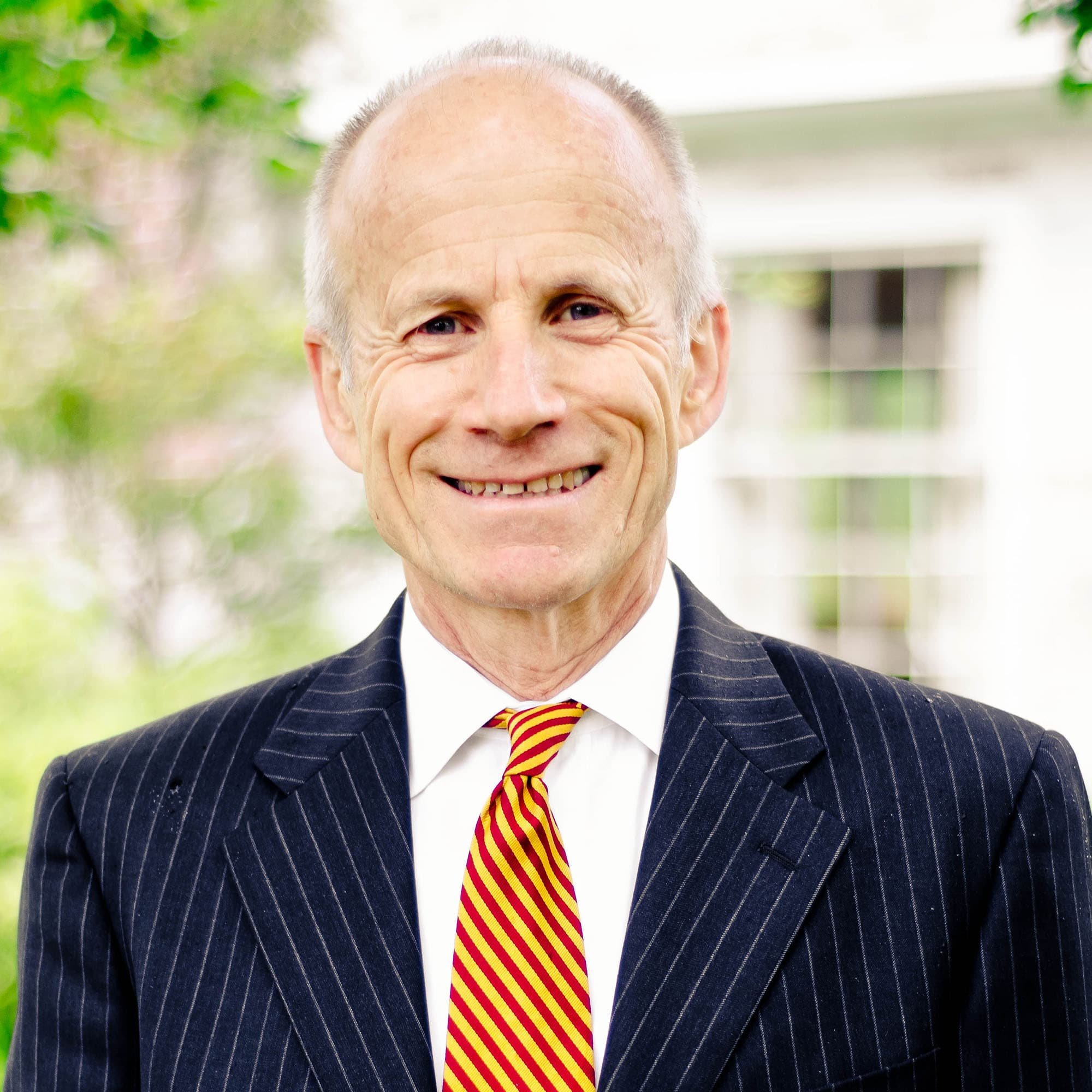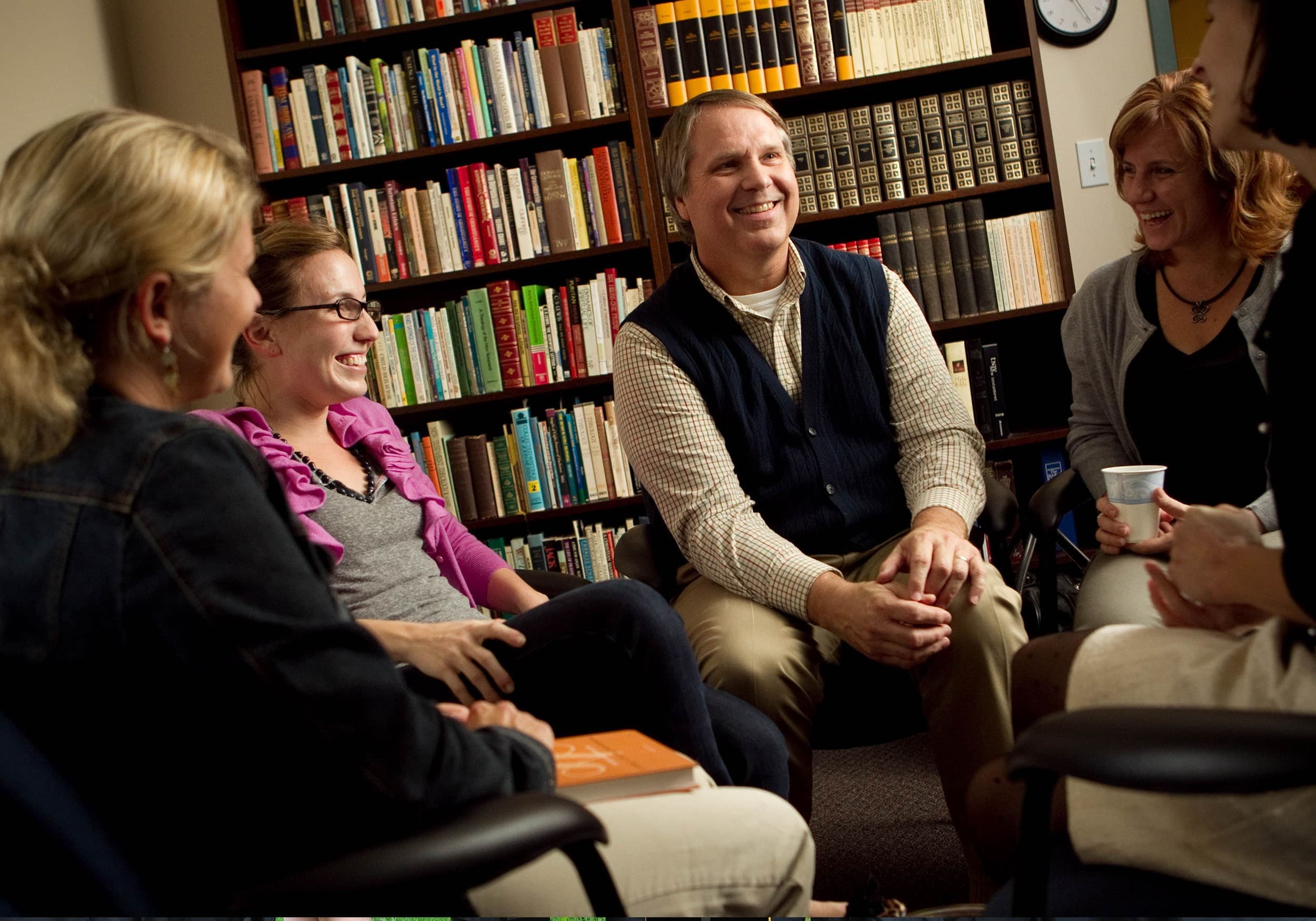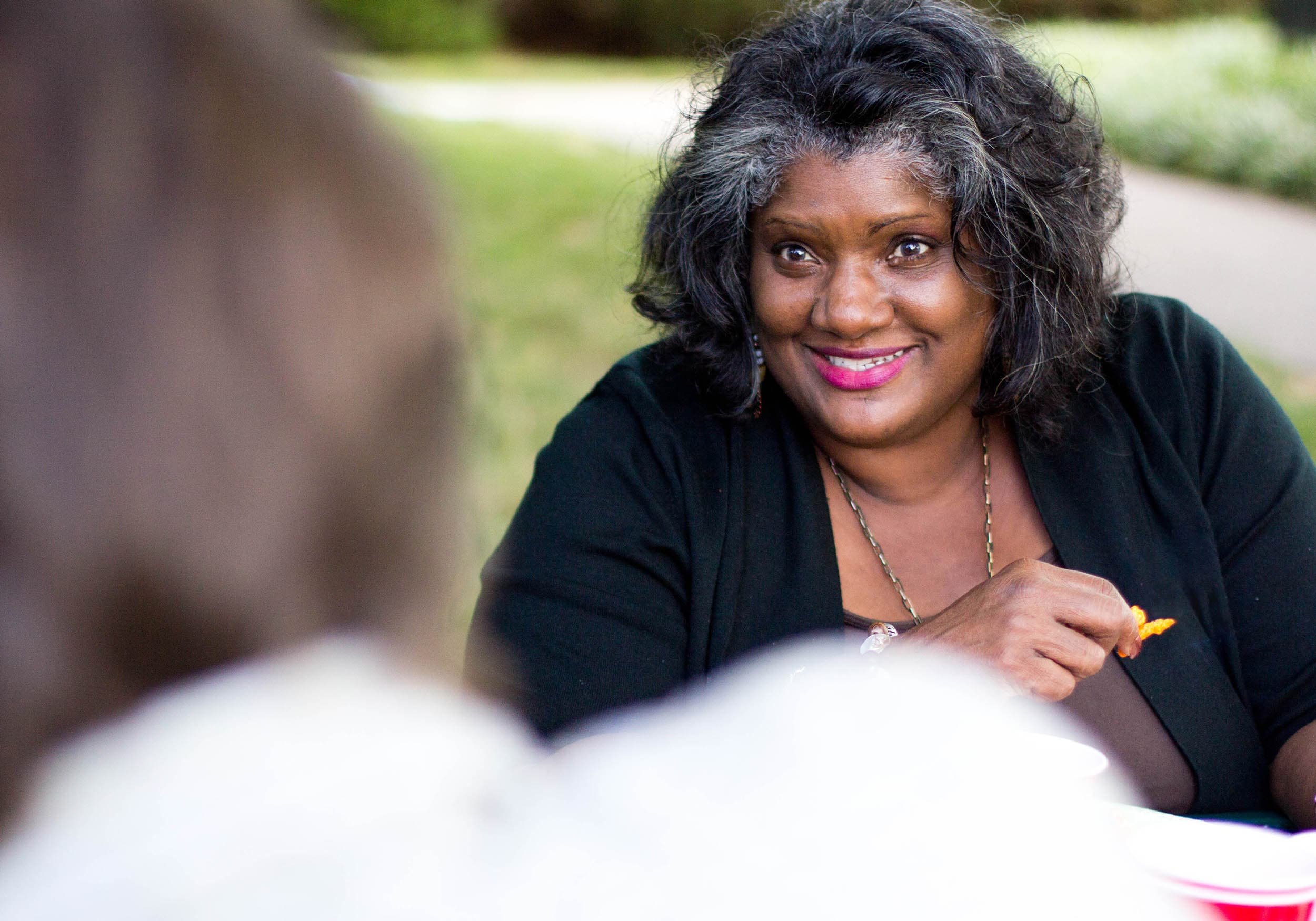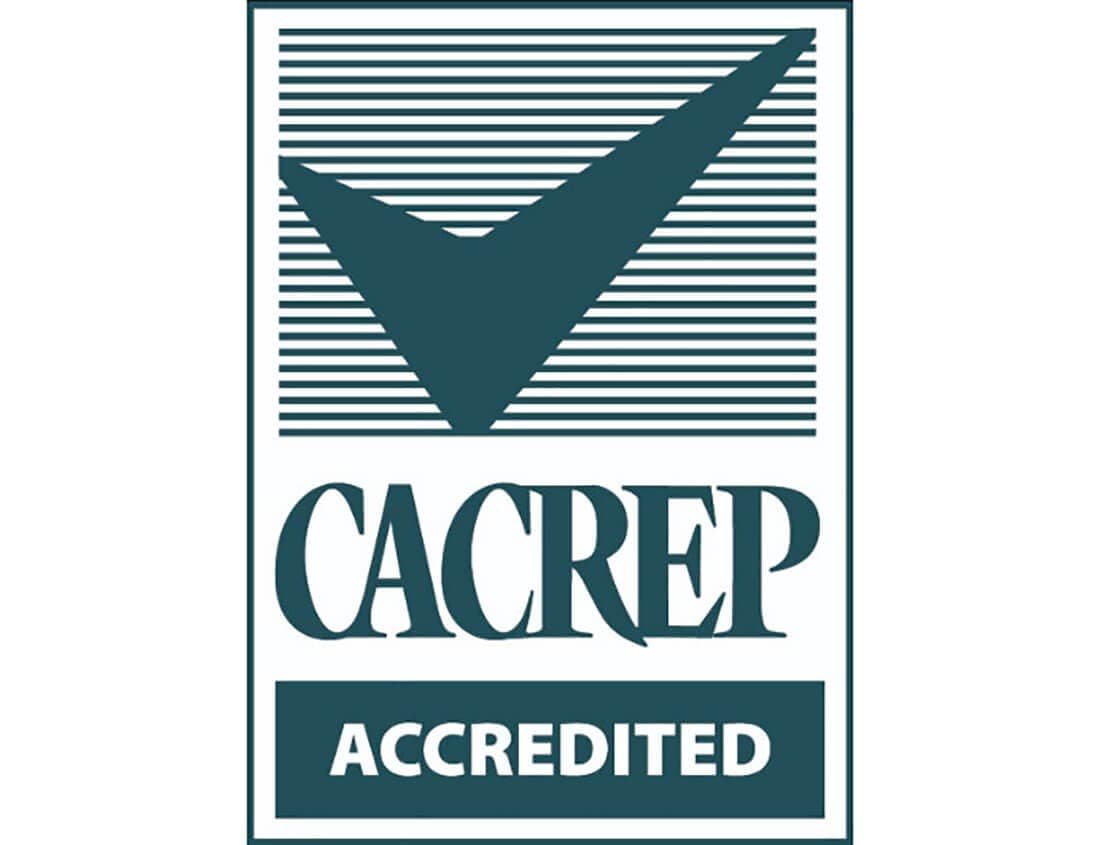
Master of Arts in Counseling
The Master of Arts in Counseling (MAC) program at Covenant Seminary is clinically focused and biblically grounded.
Our MAC program will help you become a biblically faithful and clinically excellent counselor. We help you harmonize contemporary counseling theories and techniques with a Christian worldview, and when you graduate you are prepared for licensure, changed by a community of grace, and ready to help hurting people.
The 5 foundations
of the Covenant Seminary Counseling program
A Biblical Framework
Of the program’s 75 credit hours, 15 provide a theological foundation for clinical practice. With this biblical understanding of God, human nature, and the process of change, our graduates evaluate and develop gospel-centered counseling theories and techniques.
Clinical Mental Health Counseling
Designed for those seeking licensure, the MAC provides a clinically robust education in diagnosis, theories, techniques, ethics, and current mental health research. This degree is CACREP-aligned and closely matches license board requirements in most states.
Dignity + Respect
We believe the counseling relationship should mirror the gracious relationship that Christ has with His church. Students learn to relate to clients of all genders, races, faiths, beliefs, and life experiences with respect and empathy while building a collaborative partnership for the client’s well-being.
Residential + Relational
You will receive twice the recommended hours of supervision by CACREP and significantly more than other graduate programs because we believe students best learn to become counselors in the context of relational mentoring by faculty in our residential setting.
The Power of Story
Mental health develops in the context of a story: relationships, problems, beliefs, and life experiences. We help students understand the power of story—both theirs and their clients’—so they can enter into the counseling relationship with both kindness and insight.
Counseling program goals
-
Spiritual Foundation
Learn counseling that is shaped and informed by the Bible. Learn the biblical definition of human health and flourishing from world-class Bible faculty.
-
Counseling Theory
Develop knowledge of major counseling theories in the context of individual and group counseling. Get equipped for a variety of counseling vocations.
-
Professional Identity
Learn to provide counseling services within professional ethical guidelines. 75% of our alumni pursue professional state licensure.
As a result of successfully completing the graduate program in counseling, students can expect to have gained didactic knowledge and supervised experience in skills, functions, beliefs and characteristics of effective counseling. View full mission statement
The Covenant Counseling Program Process
Year One
Begin classes such as Counseling Intro & Theories 1, Marriage and Family Counseling, Addictions, and Psychological Disorders. These provide an introduction to foundational counseling knowledge, while theology classes lay the groundwork for a biblical framework for life, relationships, and change.
You also experience mentoring relationships with faculty and the chance to be a part of a peer group to explore how your life story has shaped you. Many students express that the first year profoundly impacts how they see themselves, God, and the transformative power of the Gospel.
Year Two
Continue your education as a clinical mental health counselor. Take counseling classes such as Human Growth and Development, and Ethics & Professional Development.
Continue your biblical education. Theology classes like God & Humanity: Foundations of Counseling teaches psychological principles within a Christian framework, and Group Counseling helps you explore relational dynamics and personal and professional boundaries.
Our faculty spend time each week meeting one-on-one with students. One student said, “I’ve never felt more known and respected by professors than I have at Covenant. Studying counseling can bring up personal issues, and it matters that the professors are kind and supportive.”
Year Three
Practicum starts the summer before your final year and you begin the exciting (and somewhat scary) experience of counseling clients before transitioning to the year-long Internship. Throughout this experience, you discuss counseling situations and strategies with faculty supervisors and other students. Don’t worry! We’ve got your back through this crucial time.
Finally, as you near the end of your educational experience at Covenant, we will help prepare you for your next steps by answering questions about licensure, marketing a private practice, and providing lists of available job opportunities.
Counseling Program Overview
7,000
Average number of counseling sessions per year by our students
30
Average number of internship sites each year
30
Average number of graduates each year
14
Faculty (full-time + visiting)
120
Average number of current students
845
Covenant MAC alumni worldwide
Counseling Program Results
100%
Job Placement Rate
among respondents from 2024 graduating class
100%
Pass Rate
of 2024 graduates on licensure examinations
35
Graduates
in May 2024
Free Ebook
Ten Career Paths for Professional Counselors
Wondering what careers would be available to you by getting a Master of Arts in Counseling? This free ebook gives a helpful guide.
Where Counseling Alumni Serve
Mental Health Agencies
Churches + Pastorates
Community Service Agencies
Private Counseling Practices
Parachurch Ministries
Missions Organizations
More Details
For a more detailed look into graduate data and site supervisor feedback, take a look at our annual report for our Master of Arts in Counseling program.
View Annual Report
Degree Formats
The Master of Arts in Counseling is 75 credit hours. Due to the high relational composition of this program, it may only be completed in residence.
Program Requirements: Accredited Bachelor’s Degree, with minimum 3.0 GPA
Residential
Learn in community alongside other future counselors and while being mentored by licensed practicing counselors. This program can be completed in three years or more.
Licensure
In Missouri
The MAC has been designed to meet the educational requirements of the Missouri Committee for Professional Counselors for state licensure.
After graduation, students are prepared to continue forward with the required additional hours of supervised, post-degree counseling under a licensed professional supervisor. The Counseling Department provides career guidance and resources for finding supervisors and job placements.
Click below to see how Covenant’s curriculum matches up with the Missouri requirements to become a licensed counselor.
In other states
Licensure requirements vary widely by state, including required graduate-level classes, internship hours during graduate school and post-degree requirements.
If you plan to practice outside of Missouri, please check the state-specific information available on the web for each state’s licensing department or bureau. We can use this information to help you create a customized plan for MAC courses to be taken at Covenant Seminary or partner institutions in St. Louis.
Click below for a brief portability analysis of how each state’s licensure requirements match with Covenant’s degree.
Accreditation
Covenant Seminary’s 75-credit hour Master of Arts in Counseling is CACREP accredited. Students who have graduated with the 75-credit hour degree (since 2022) can enjoy the portability of a CACREP counseling degree when seeking licensure in other states. Covenant Seminary is also accredited by the Association of Theological Schools (ATS) and the Higher Learning Commission (HLC).
Application Process
The Master of Arts in Counseling has limited enrollment. Students who are admitted to the MAC are admitted to a specific internship year. And since we have limited internship sites, we must limit our enrollment to match. The application process for the MAC consists of two parts:
The Application
Prospective students should fill out the application like normal, including transcripts, references, and a personal essay. Don’t worry, your personal Admissions Representative will keep track of all of this for you.
Personal Interviews
Applying for the MAC program also requires personal interviews with both admissions staff and a member of the counseling faculty (via Zoom or in-person). The interviews will talk about you background, desire to study, and answer any questions you might have.
All written application pieces must be completed a week prior to your selected interview date.
Counseling Faculty & Staff
-

Prof. Suzanne Bates
Assistant Professor of Counseling
-

Donna Coffey
Counseling Administrator
-

Dr. Paul Loosemore
Assistant Professor of Counseling
-

Dr. Mark Pfuetze
Associate Professor of Counseling
-

Bailey Preib
Internship Coordinator
-

Dr. Jeremy Ruckstaetter
Associate Professor of Counseling
-

Dr. Richard Winter
Professor Emeritus of Counseling
-

Dr. Dan Zink
Professor of Counseling
-

Counseling Adjunct Faculty
and Visiting Instructors
Counseling Program Resources
-
For Site Supervisors
Thank you for considering being a Practicum or Internship site supervisor. Site supervisors play an invaluable role in our students’ growth and development, and our gratitude cannot be measured.
As we know supervising takes energy and time, we have made every effort to minimize required administrative details so that the time you have for supervision can be used in person with our student counselors as much as possible.
In the Handbook below, you will see that we:
• require only one application per year
• keep paperwork to a minimum requiring only a 3-page evaluation of the student each semester
• ask that you give your student counselor one hour of supervision a week
• offer to supplement a student counselor’s client load through clients at the Covenant Counseling Center
• provide training for our Site Supervisors including an annual site supervisors lunch and learn; a free, yearly suicide assessment training; free registration to our annual Austin Harrington Counseling Lectures; an invitation to our annual, 4-part Professional Counselor Training Series
We look forward to seeing how we can partner together in training the next generation of counselors, and look forward to your application.
Download the Site Supervisor Handbook (same for Practicum and Internship).
Fill out the Site Supervisor Registration Form (same for Practicum and Internship)
For Students
All Covenant counseling students are required to complete, in sequential order, one semester of Practicum and three semesters of Internship. Client hours for Practicum and Internship can be completed at an approved site as arranged with the Covenant Internship Director. During the Practicum and Internship, client can also be seen at the Covenant Counseling Center on Covenant’s campus. Please note, client opportunities at the Center are designed to supplement any client hours a student counselor does not get through his or her off-campus site.
During Practicum, students must get a minimum of 100 total hours, 40 of which must be directly with clients. Supervision is provided by the site supervisor, as well as the CTS Faculty Supervisor.
During Internship, students must obtain a minimum of 600 hours, 240 of which must be directly with clients. Supervision is provided by the site supervisor, as well as the CTS Faculty Supervisor.
A list of approved sites and supervisors is provided to students upon request throughout the year. Other sites are possible and should be discussed with the Internship Director for approval
For more information:
-
Looking for free counseling in the greater St. Louis area? Visit our Counseling Center page to register.
-
The 75-credit hour MAC degree has been crafted to be aligned with the Council for Accreditation of Counseling & Related Educational Programs (CACREP) while remaining rooted in biblical integration and theology. It is fully CACREP accredited. Students who have graduated with the 75-credit hour degree (since 2022) can enjoy the portability of a CACREP counseling degree when seeking licensure in other states.
Covenant Theological Seminary is accredited by The Higher Learning Commission and a member of the North Central Association of Colleges and Schools. The institution has been approved under Commission policy to offer all its degree programs.
Contact:
Higher Learning Commission
230 South LaSalle Street, Suite 7-500
Chicago, IL 60604, USA800.621.7440
www.higherlearningcommission.org
Covenant Theological Seminary is also accredited by the Commission on Accrediting of the Association of Theological Schools in the United States and Canada (ATS), with the following degree programs approved: Master of Divinity (MDiv), MA (Biblical and Theological Studies) (MABTS), MA in Ministry (MAM), MA (Theological Studies) (MATS), MA in Counseling (MAC), Master of Theology (ThM), and Doctor of Ministry (DMin); and with teach out programs in the following degree: MA in Missional Theology (MAMT), The Seminary is approved for a Comprehensive Distance Education Program.
Contact:
The Commission on Accrediting of the Association of Theological Schools in the United States and Canada
10 Summit Park Drive
Pittsburgh, PA 15275, USA412-788-6505
Fax: 412-788-6510

Ready to begin?
Take the next step towards becoming a counselor.














